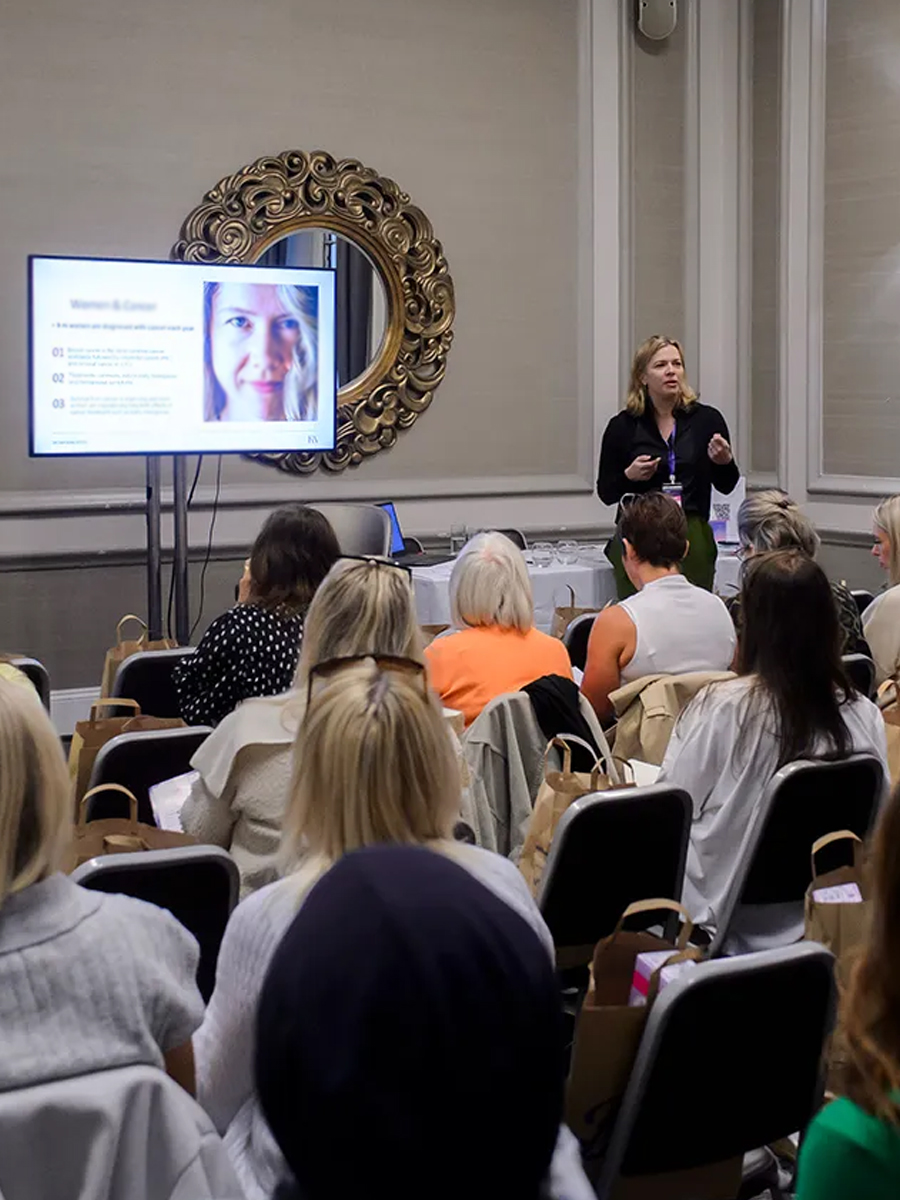The Future Patient programme has been curated to provide delegates with an overview of the what, why and how of preventative and functional medicine. Bringing together leading minds from the longevity and functional medicine space, it covers the cores pillars of healthy ageing and why it matters now more than ever.
Future Patient Congress 2026 – Thursday 5th February 2026
| 8:30 – 9:25 | A new approach to healthcare: Why now is the time for change | |
| 8:30 - 8:40 | Introduction to the Future Patient vision and setting intentions for the day | Dr Mayoni Gooneratne, Charlotte Body, Vicky Eldridge |
| 8:40 - 9:00 | The case for preventive healthcare today | Dr Mayoni Gooneratne (chair) |
| 9:00 - 9:30 | Panel Discussion: Reimagining the future of health: -- Discussion themes:
| Adam Hewitt, Emma Beswick, Benjamin Brown, Ghazala Aziz Scott |
| 9:30 - 10:30 | The functional pathway: From root cause to real change | |
| 9:30 - 9:50 | Setting up a functional medicine clinic -- Discussion themes:
| Jo Gamble |
| 9:50 – 10:10 | Health Optimisation 101 Everything you need to help your patient's craft a holistic lifestyle | Lauren Vaknine |
| 10:10 – 10:30 | “Physician, heal thyself”: Why your own health matters -- Discussion themes:
| Susie Edwards |
| 10:30 – 11:00 | Morning coffee break (30 mins) | |
| 11:00 – 12:00 | The personalised pathway: Diagnostics, insight and tailored treatment strategies | |
| 11:00 - 11:20 | The future of Pharma 5.0: Revolutionising treatment through compounding and personalisation | Bruna Marianni |
| 11:20 - 11:40 | NGS (Next-Generation Sequencing) and Cellimmune: The Future of health, longevity, and immune intelligence -- Discussion themes:
| Professor Tim Wang, Esther Fieldgrass |
| 11:40– 12:00 | Connecting the Dots: How Functional Medicine Unlocks New Solutions for Hormonal Health | Dr Andie Siggers |
| 12:00 - 13:00 | Mind opening medicine: Medicinal mushrooms, consciousness and emerging biology | |
| 12:00 - 12:20 | Mycotherapy in modern medicine: Integrative approaches for patient care | Dr Catalina Fernández de Ana Portela |
| 12:20 – 12:40 | From biology to belonging: How connection, community and consciousness shape health -- Discussion themes:
| Dr Nima Mahmoodi, Alanna Kit, Paris Macgarr |
| 12:40 – 13:00 | Spikeopathy: Understanding the toxicity of the spike protein and effective detoxification approaches with Augmented NAC | Fabio Zoffi, Dr Tina Peers |
| 13:00 – 14:30 | Lunch Break (1.5 hours) | |
| 14:30 – 15:00 | Gut health and nutrition | |
| 14:30 – 14:50 | Personalised nutrition and functional digestive disorders: taking the BS out of IBS! | Benjamin Brown |
| 14:50 – 15:10 | Food as medicine -- Discussion themes:
| Antony Haynes |
| 15:10 - 15:30 | Supplementation: When, why and how – PANEL -- Discussion themes:
| Antony Haynes, Kim Pearson, Dr Nichola Conlon |
| 15:30 - 15:50 | Beyond fasting: Building a medical nutrition programme for chronic disease reversal -- Discussion themes:
| Dr William Hsu |
| 15:50 - 16:20 | Afternoon coffee break (30 mins) | |
| 16:20 - 16:45 | The future of longevity: A global view | |
| 16:20 - 16:45 | Longevity horizons: A worldwide view of health and aging | Dr Robert Lufkin |
| 16:45 - 17:25 | Restoring balance: Regulating the nervous system and hormones | |
| 16:45 - 17:05 | Stress and nervous system health -- Discussion themes:
| Sherezade Ruano |
| 17:05 - 17:25 | Hormones and whole-body balance -- Discussion themes:
| Tracey Dennison, Lauren Vaknine, Dr Ginni Mansberg, Ghazala Aziz Scott |
| 17:25 - 18:15 | Powering longevity: Cellular energy, movement and integrative eesthetics | |
| 17:25 - 17:45 | Mitochondrial health: Powering the body -- Discussion themes:
| Emma Beswick |
| 17:45 - 18:00 | Movement and exercise -- Discussion themes:
| Adam Hewitt |
| 18:00 - 18:15 | Integrative Aesthetics: Redefining Medical Aesthetics and Longevity in the Future of Medicine. In an era where healthspan meets aesthetic innovation, this symposium explores the emerging field of Integrative Aesthetics - a convergence of regenerative science, functional medicine, and precision aesthetics. | Dr Mayoni Gooneratne |
| 18:15 - 18:30 | Closing remarks -- Discussion themes:
| Dr Mayoni Gooneratne, Charlotte Body, Vicky Eldridge |
Subscribe to our magazine
Fill in your details opposite to sign up to our Future Patient magazine.
